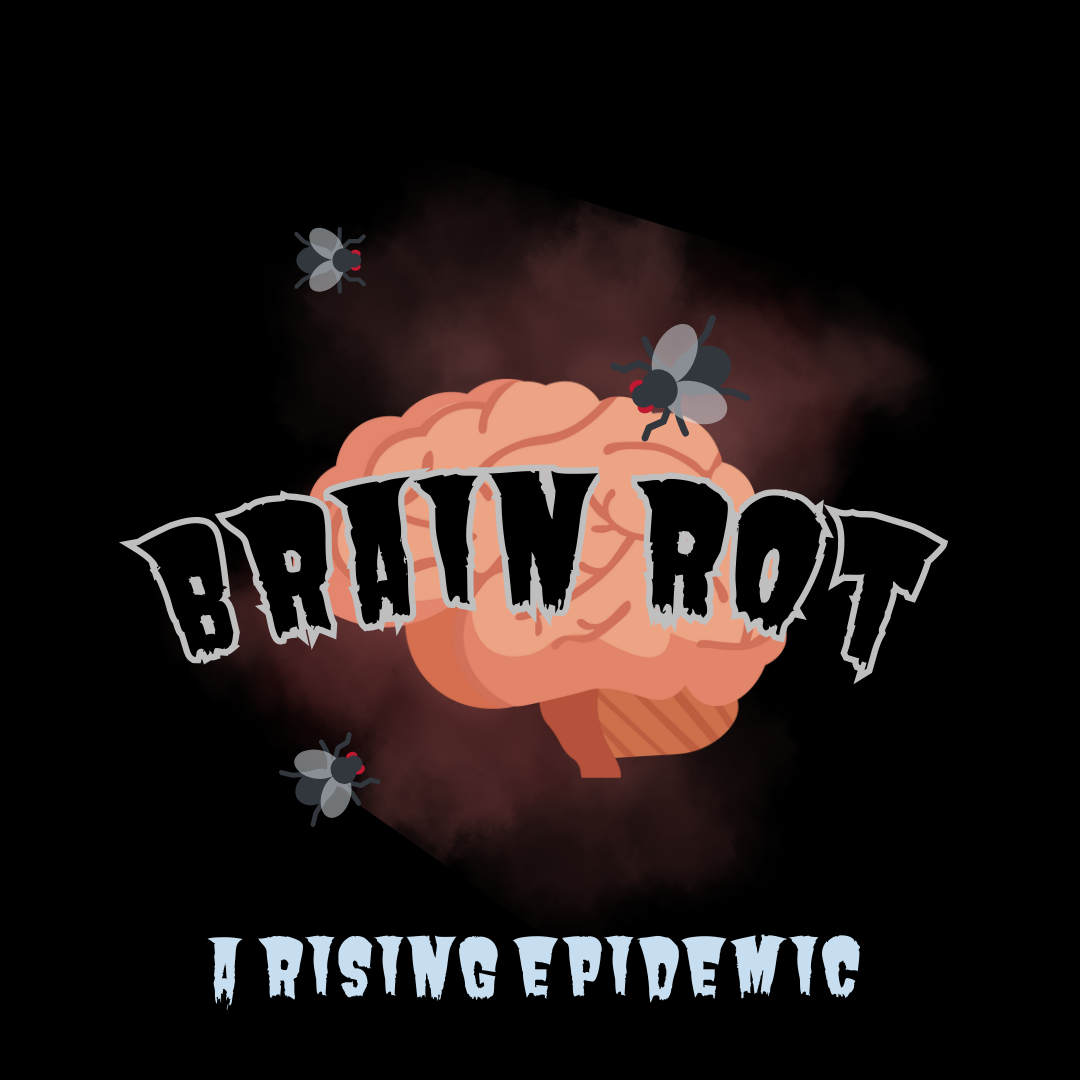Throughout recent years, a new, more intricate form of slang has clawed its way through children’s minds. This slang has completely changed how some children communicate, altering the brain chemistry of those who encounter it. While some people hear “what the sigma“ or “skibidi toilet rizz” and lie awake at night wondering what the phrases mean, others are chronically online enough to understand the lore and depth behind them. With the recent rise of Gen Z social media comes a new generation of slang many believe has been corrupted by excessive screen time usage. The people who suffer the most from this jargon are diagnosed with a unique condition. Symptoms include reduced attention span, mental fogginess, knowing niche topics and loss of touch with the real world. If anyone suffers from these symptoms, then they might have an underlying case of brain rot.
“[Brain rot] is like a newer generation of slang where we use the internet too much and it gets into our minds,” Michael Dang (10) said. “We become less valuable humans, [causing] our brain to evolve, just backwards.”
Brain rot refers to the mental fogginess or deterioration of one’s brain due to excessive social media usage. The phrase was popularized on TikTok after an influx of children’s personalities coincided with the mannerisms and words they learned from watching short TikTok clips. Phrases like “fanum tax,” “the rizzler” and “chat” have infected many kids’ brains, causing them to only speak in online comment formats instead of creating coherent, meaningful sentences.
“Some people don’t have anything better to do than be online,” Mary Ezell (9) said. “Their parents gave them access to the internet at a young age [so] their brain [is] fried. [Some] people try to explain things and, the first thing that comes to their mind is something that is brain rotted.”
Brain rot has left many individuals unable to create original thoughts and ideas. Today’s classrooms encounter a wide variety of students using phrases like “I’m cooked” or “I cooked” instead of logically expressing how they did on an assignment. The expression “I’m cooked” refers to a person struggling with a specific task and knowing they will not succeed at it. “I cooked,” on the other hand, is the positive phrasing, where a person has accomplished their task and is content with the outcome. With the complex or sometimes similar wording of brain rot jargon, some adults and children — immune to catching this infectious disease — are left confused by the words they hear. These phrases have caused a rising disconnect between students and teachers; however, many students who know the brain rot terminology have grown closer to their peers through slang usage.
“[Brain rot] has made it easier to connect with people of our generation,” Oneira Caviness (9) said. “People your age understand you more. If you’re in a classroom and you’re saying ‘I’m cooked’ or ‘there’s a test; we’re cooked’ people start laughing and connecting with each other.”
Although brain rot has brought some individuals closer together, it has also rearranged many children’s self-perception, causing them to develop self-image problems. Phrases like “looksmaxxing” and “mewing” have entered children’s vocabulary as slang for ways to improve their facial structure. Looksmaxxing is an umbrella term that refers to a way for a person to change their appearance to reach the highest beauty standards possible. A type of looksmaxxing exercise method is mewing. Mewing occurs when a person places their tongue at the top of their mouth to accentuate their jawline. Besides looksmaxxing and mewing, other brain rot words like “girl pretty” vs “boy pretty,” “alpha male” vs “sigma male” and “gyatt” have caused a variety of children to lose sight of themselves in hopes of meeting social media beauty standards.
“Social media has unrealistic standards,” Ezell said. “[Kids] shouldn’t be thinking about [looks] at such a young age because it can cause them to think negatively about themselves or develop suicidal thoughts.”
Social media is a safe haven for lots of individuals to explore new topics and learn more about themselves. However, too much of anything can be dangerous. Brain rot has caused many children to be unable to separate reality from social media’s far-fetched beauty standards and unique phrases. Brain rot is still a rapidly emerging condition, infecting those who spend hours upon hours scrolling on their phone. The spread of this new epidemic has deprived many kids from creating their own individuality, leaving most confined to following the newest social media trend.
“[People are] chronically online because it’s very easy to access,” Dang said. “When you get that addiction from scrolling through the news or Instagram … [you] become less independent and use the internet a lot.”




































